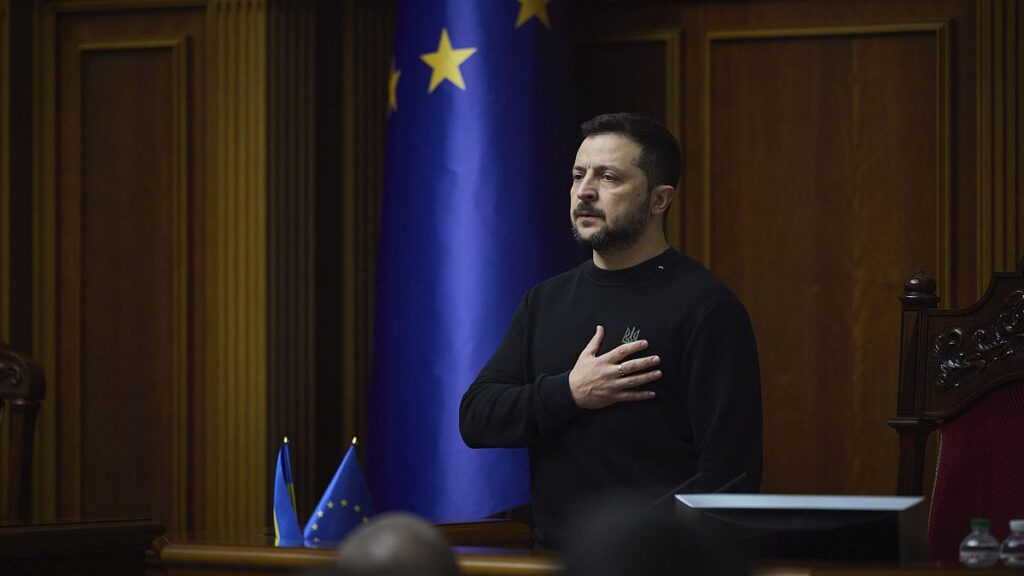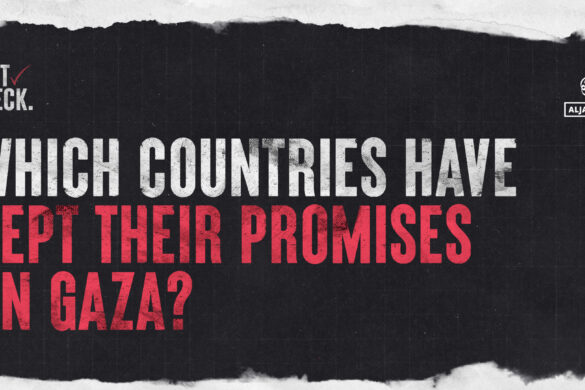Confidence in Ukraine’s president declined slightly, with 52% of Ukrainians feeling confident, 39% expressing distrust and 9% undecided. However, the balance between trust and distrust is positive.
As Russia’s all-out invasion of Ukraine approaches the three-year mark, trust in Ukrainian President Volodymyr Zelensky has declined slightly in the country, according to a latest poll.
According to data collected by the Kyiv International Institute of Sociology (KMIC) in December, 52% of Ukrainians remain confident in Zelensky and his leadership, 39% are distrustful, and 9% are undecided.
The poll shows that although the level of confidence has deteriorated over the past year, the balance in favor of the Ukrainian leader remains positive, at +13%.
The KMIC poll also shows last year’s dynamics: at the end of 2023, 77% of Ukrainians trusted the president. By February 2024, trust had fallen to 64%, and by May 2024, it had fallen further to 59%, with the share of those expressing distrust increasing from 22% to 36% over the same period.
The figures stabilized in October, but the level of confidence fell again between October and December. The decline was attributed more to respondents’ growing uncertainty about Ukraine’s future than to outright distrust of its leaders.
Interestingly, almost all of the declines coincided with some event that could have had an impact. According to KMIC, Mr. Zelensky’s popularity rating fell by about five percentage points after General Valery Zaluzhny left his post as commander-in-chief of the Ukrainian armed forces in February 2024.
Then, in April, just before confidence fell in May polls, Zelensky signed an unpopular mobilization lawlowering the conscription age from 27 to 25 and simplifying the identification of conscripts throughout the country.
The fall in confidence in the fall coincided with a massive Russian offensive in eastern Ukraine, with Pokrovsk and Kurakhove as main targets. During the fall, Russian forces advanced at a pace and under pressure not seen since the early days of the full-scale invasion.
The latest poll was conducted using telephone interviews, KMIC said. A random sample of cell phone numbers was selected from all regions of Ukraine (the territory controlled by the Ukrainian government) and 2,000 people were interviewed.
KMIC also points out that confidence in the president is “much more strongly linked not to region of residence, but to level of optimism.” The institute previously published the results of a survey on how optimistic Ukrainians are about the future and how they assess the unity of society.
According to one classification, 50% of Ukrainians are constant or relatively constant optimists, while 23% are constant or relatively constant pessimists. The remaining 27% have conflicting or uncertain opinions about the future and unity of Ukrainians.
Additional sources • KMIC




